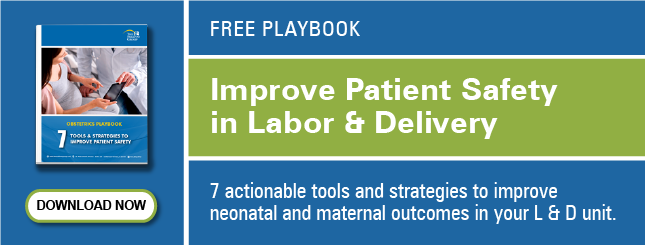 In January 2020, the first case of the novel virus known as SARS-CoV-2 (severe acute respiratory syndrome coronavirus 2), responsible for COVID-19 disease, was found in the United States. Since that time, there have been 6 major vaccines developed to prevent infection with this virus. However, none of the original trials included pregnant women. Three of these vaccines – Moderna, BioNTech-Pfizer and Johnson & Johnson have received Emergency Use Authorization (EUA) for administration in the U.S. population, with 100 million doses given as of this article’s writing. Soon after the EUA was determined, the CDC, ACOG and SMFM released recommendations specific for pregnant women:
In January 2020, the first case of the novel virus known as SARS-CoV-2 (severe acute respiratory syndrome coronavirus 2), responsible for COVID-19 disease, was found in the United States. Since that time, there have been 6 major vaccines developed to prevent infection with this virus. However, none of the original trials included pregnant women. Three of these vaccines – Moderna, BioNTech-Pfizer and Johnson & Johnson have received Emergency Use Authorization (EUA) for administration in the U.S. population, with 100 million doses given as of this article’s writing. Soon after the EUA was determined, the CDC, ACOG and SMFM released recommendations specific for pregnant women:
- COVID-19 vaccines should not be withheld from pregnant women.
- Counseling is not required, and more importantly, lack of counseling should not deter a woman from becoming vaccinated. (ACOG Practice Bulletin, March 4, 2021)
What do we know about the current COVID-19 vaccines and pregnancy?
According to guidelines from ACIP (Advisory Committee on Immunization Practice) regarding immunization during pregnancy, vaccine decisions should be based upon:
- The specific disease and its burden
- Data on efficacy, safety
- Trimester-specific concerns
- Known maternal, fetal, and newborn adverse effects (AE) linked to the vaccine
So how can we apply these guidelines to COVID-19 vaccines for pregnant women?
1) Burden of COVID-19 disease on pregnant women
The data on COVID-19 and patient outcomes for pregnant women has only recently been collected and analyzed. Outcomes for 400,000 deliveries (20% of the deliveries in the U.S.) were collected from April to November 2020, with over 6,000 women positive for COVID-19 (JAMA Intern Med, 2021). There were some alarming rates for severe maternal mortality and morbidity (SMM) noted from this data.
Pregnant women with COVID-19 had an increased need for mechanical ventilation, and death rates were 26 times that of women not infected. COVID-19-infected women had a relative risk (RR) of 6 for ICU admission and an RR of over 3 for the incidence of venous thromboembolism; myocardial infarctions, though rare, increased from an incidence of 0.004% to 0.1%, an RR increase of 31. The occurrence of premature labor and stillbirths was noted to be increased by almost 20%. There have been case reports of pancreatitis and multisystem inflammatory syndrome occurring in pregnant women after a COVID-19 infection (Obstet Gynecol, Dec 2020).
Women experiencing the worst COVID-19 SMM had similar epidemiological risk factors identified in the general population: older age, higher BMI, Black or Hispanic race, and pre-existing conditions such as asthma and diabetes.
2) Safety data on COVID-19 vaccines in pregnancy
Historically, vaccine safety for pregnant women has been established utilizing:
- Animal studies: So far, only Moderna has data on reproductive toxicity in rats with no adverse effects on fetal, embryonic, postdelivery development, or female reproduction. Other manufacturers are completing these studies now.
- Theoretical risks of vaccine: None of the current vaccines have a theoretical risk or concern for AE in pregnancies. The known AE of the currently available vaccines are fever, myalgias and anaphylaxis, none of which are considered a contraindication for pregnancy. A vaccine currently undergoing Phase 3 trials, Novavax, is based upon the same model as the influenza vaccine that is recommended for pregnancy.
Concerns about Astra-Zeneca COVID vaccine (currently not approved for use in the U.S.) for an increased incidence of VTE events may have significance for pregnant women, but as of now, this association has not been definitely established.
- Data collected after vaccination has been performed for a large number of pregnant women: As of the writing of this article, CDC V-safe has reports of over 44,000 women who were pregnant when they received the vaccine. To date, there have been no AEs reported; published pregnancy outcomes of the 275 completed pregnancies (232 live births) show no increased incidence of pregnancy loss, complications or neonatal adverse outcomes, although many of these pregnancies have not been completed.
- Outcome data collected for pregnant women after vaccine trials: Although pregnant women are excluded from the trials, there have been a few pregnant women who were inadvertently enrolled and received the vaccine. All companies currently administering the vaccine or in the process of completing Phase 3 trials are tracking pregnant women in their trials.
Pfizer has recently announced that they will start enrolling 4,000 pregnant women in a new trial to study efficacy and AEs.
 Thus, practitioners who are asked by their patients about the safety of receiving currently available COVID-19 vaccines while pregnant can only share the current knowledge, which is that at the present time, there are no known, identified or theoretical adverse events for pregnant women, fetuses or newborns.
Thus, practitioners who are asked by their patients about the safety of receiving currently available COVID-19 vaccines while pregnant can only share the current knowledge, which is that at the present time, there are no known, identified or theoretical adverse events for pregnant women, fetuses or newborns.
When counselling patients regarding their decision on vaccination, it is important to follow WHO advice: pregnant women “at high risk of exposure to SARS or who have comorbidities which add to the risk of severe disease may be vaccinated…” Conversely, healthy women who can avoid exposure could consider waiting to get vaccinated until after completion of pregnancy if their exposure and health risks do not change.
3) Trimester-Specific Concerns
Trimester-specific concerns are theoretical and based upon known vaccine side effects such as fever, which is rarely associated with early pregnancy loss and possible effects on embryogenesis. So, it may be best to wait until the second trimester to take the vaccine. Evidence for in-utero transfer of COVID-19 maternal antibodies to the fetus was recently reported when a newborn infant born to a mother who received a Moderna vaccine at 36 weeks had COVID-19 antibodies. Other reports note that infants demonstrated IgG antibodies to COVID-19 in cord blood 3-4 weeks after maternal COVID-19 infection; to date our knowledge of how long the antibodies will last in NB’s is unknown. Thus, current discussion regarding the timing of the COVID-19 vaccine recommends administration after the first trimester is completed, and with enough time for two doses to be completed; optimal timing may be mid-pregnancy, in the 2nd
As we learn more about COVID-19 infections in ongoing pregnancies and in the ongoing trials, recommendations will be more grounded in data. Until then, our patients who are at risk for SMM from an infection during pregnancy of the novel SARS virus OR at risk for exposure (e.g., healthcare workers), OR anyone desiring vaccination can be reassured about taking this vaccine.
References
- Dooling K, Marin M, Wallace M, et al. The Advisory Committee on Immunization Practices’ Updated Interim Recommendation for Allocation of COVID-19 Vaccine — United States, December 2020. MMWR Morb Mortal Wkly Rep. 2021;69:1657-1660. DOI: http://dx.doi.org/10.15585/mmwr.mm695152e2.
- Jering K, Claggett B, Cunningham J. Clinical characteristics and outcomes of hospitalized women giving birth with and without COVID-19. JAMA Intern Med. Published Jan 15, 2021. doi:10.1001/jamainternmed.2020.924,
- Narang K, Szymanski L, Kane S, Rose C. Acute pancreatitis in a pregnant patient with Coronavirus disease 2019 (COVID-19). Obstet Gynecol, 2021; 137:431-3.
- Rasmussen S, Jamieson D. Pregnancy, Postpartum care, and COVID-19 vaccination in 2021. JAMA Insights. Published online Feb 2021 doi: 10.1001/jama.2021.1683.
- Rasmussen S, Kelley C, Horton J, Jamieson D. Coronavirus Disease 2019 (COVID-19) Vaccines and pregnancy; what Obstetricians need to know. Obstet Gynecol. 2021; 137:408-14.


